Table of Contents
- Western Balkan Moms Eager To Breastfeed, But Thwarted By Corruption And Old Wives' Tales
- Breastfeeding Practices Within Serbia, Bosnia, And Croatia
- Perceived Breastfeeding-Related Healthcare Provider Competence
- Social Attitudes Mothers Serbia, Bosnia, And Croatia Encounter About Breastfeeding
- Mothers’ Beliefs About Breastfeeding
- What Could Be Done To Increase Breastfeeding Rates?
- Western Balkan Breastfeeding Moms Thwarted By Corruption And Old Wives' Tales: Discussion
- Show full content
Across the four regions, more than 80% of respondents believed breast milk to be nutritionally superior to formula, while six percent or less thought formula was nutritionally superior.
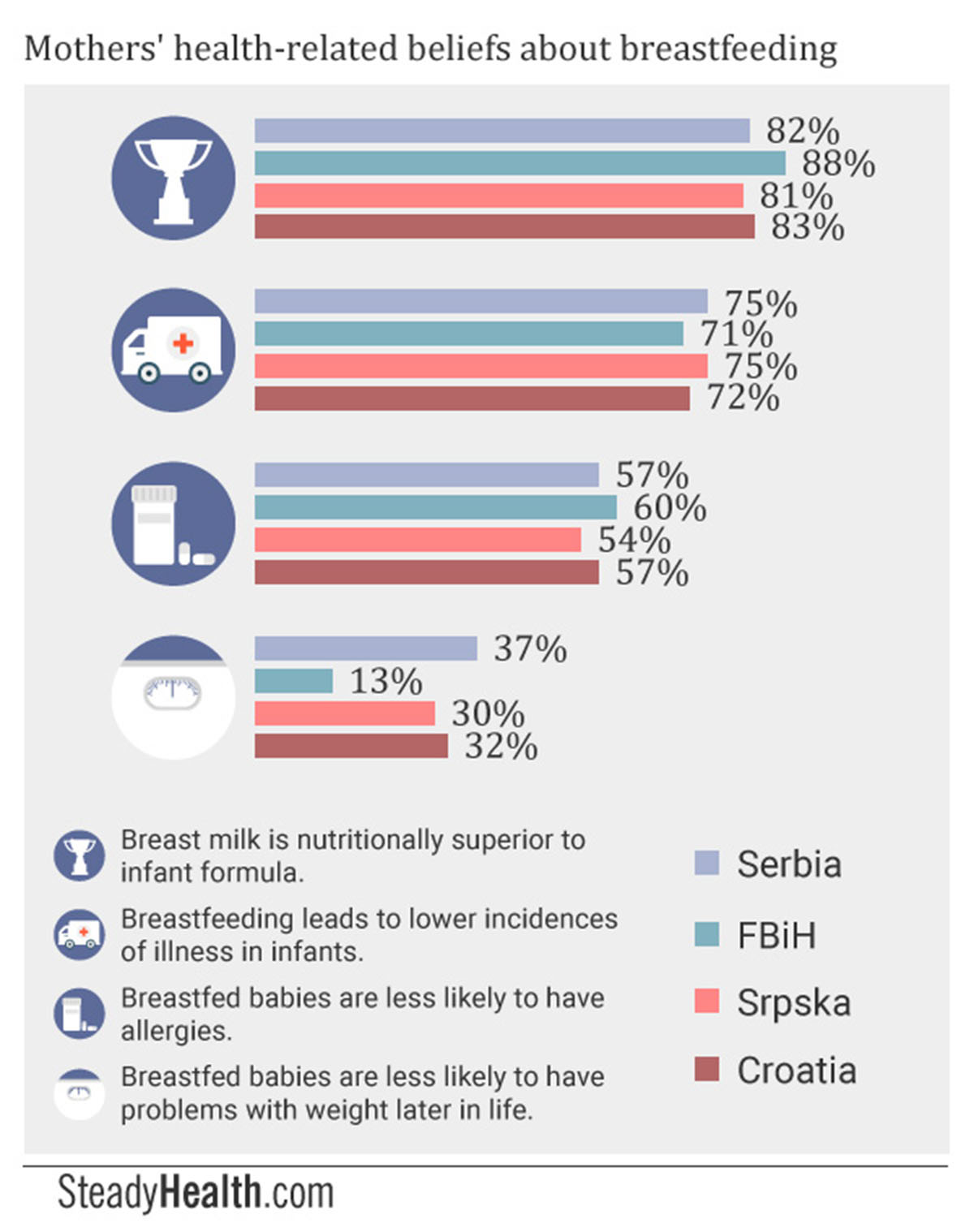
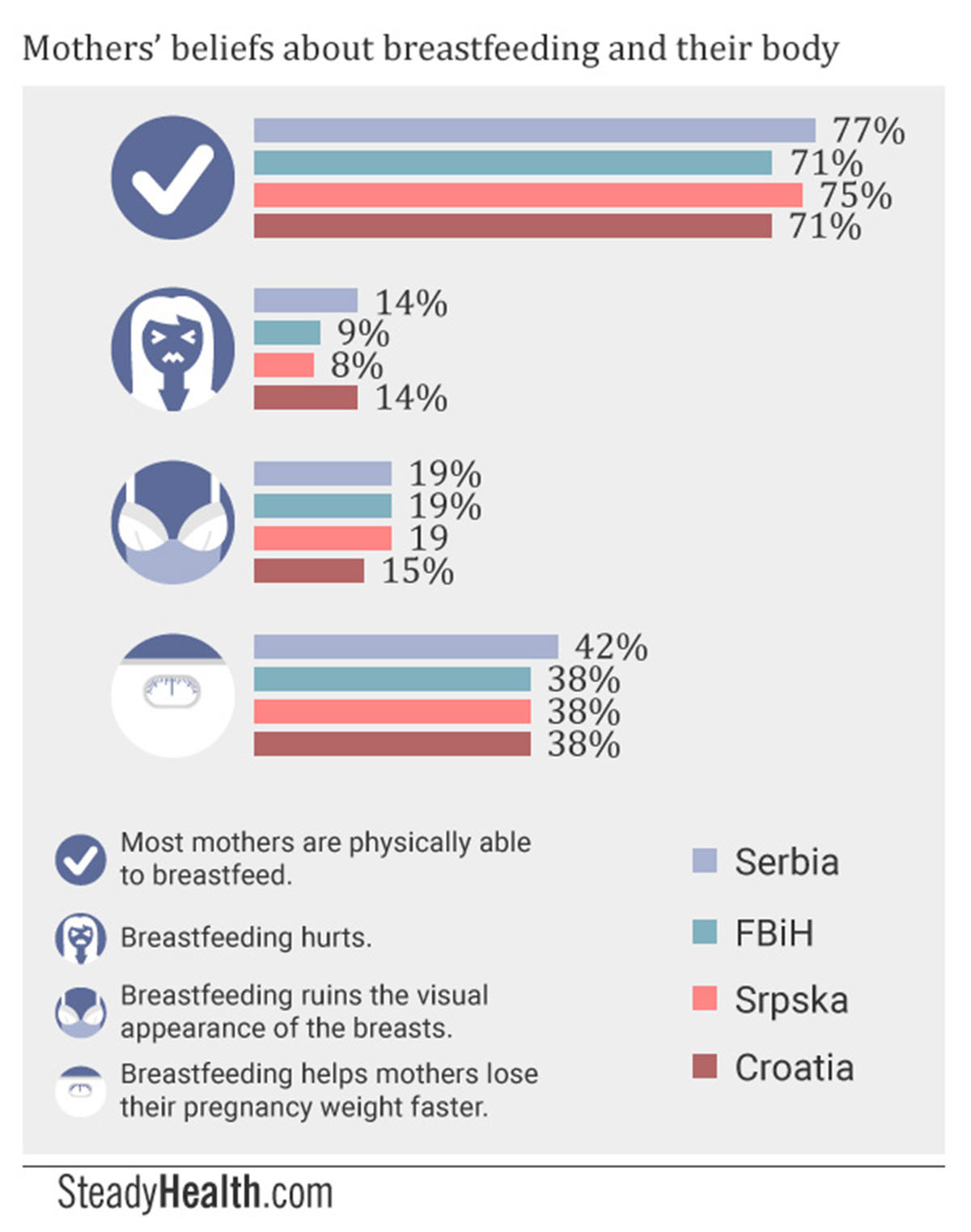
A total of 65% of FBiH participants agreed that nursing offered health benefits to mothers as well, with 62% in Srpska, 58.5% in Serbia, and 54% in Croatia also being aware of this fact. However, 14% each in Croatia and Serbia believed that “breastfeeding hurts”, as well as 9% and 8% in FBiH and Srpska respectively. In addition, 19% of mothers in both parts of Bosnia and Herzegovina and in Serbia held the view that “breastfeeding ruins the visual appearance of the breasts”, something 15% of respondents within Croatia also believed to be true. At the same time, 38% of participants from both parts of Bosnia and Herzegovina and Croatia, and 42% from Serbia, were aware that nursing helps them lose their postpartum weight more quickly.
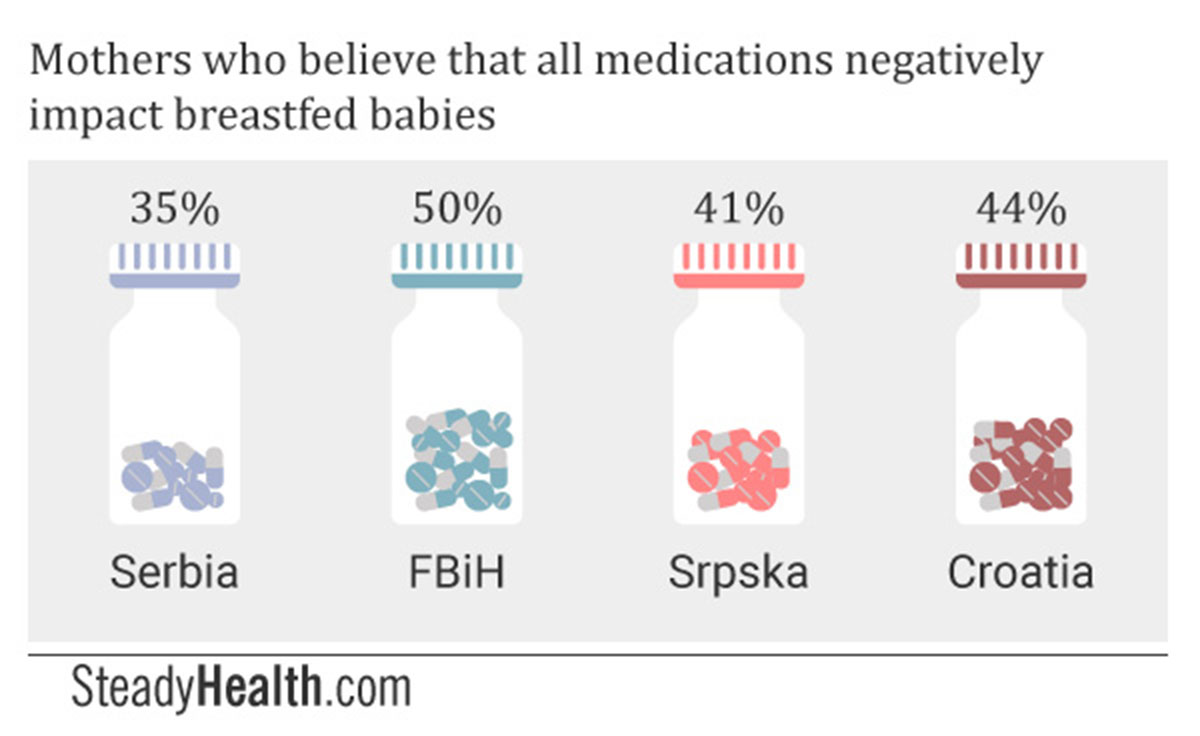
While certain medications do appear in breast milk, and extra care must be taken with premature babies, the widely held belief that all medications a mother takes negatively impact a breastfed baby could both lead mothers who don’t need to stop nursing to feed formula instead, and prevent mothers from accessing adequate healthcare.
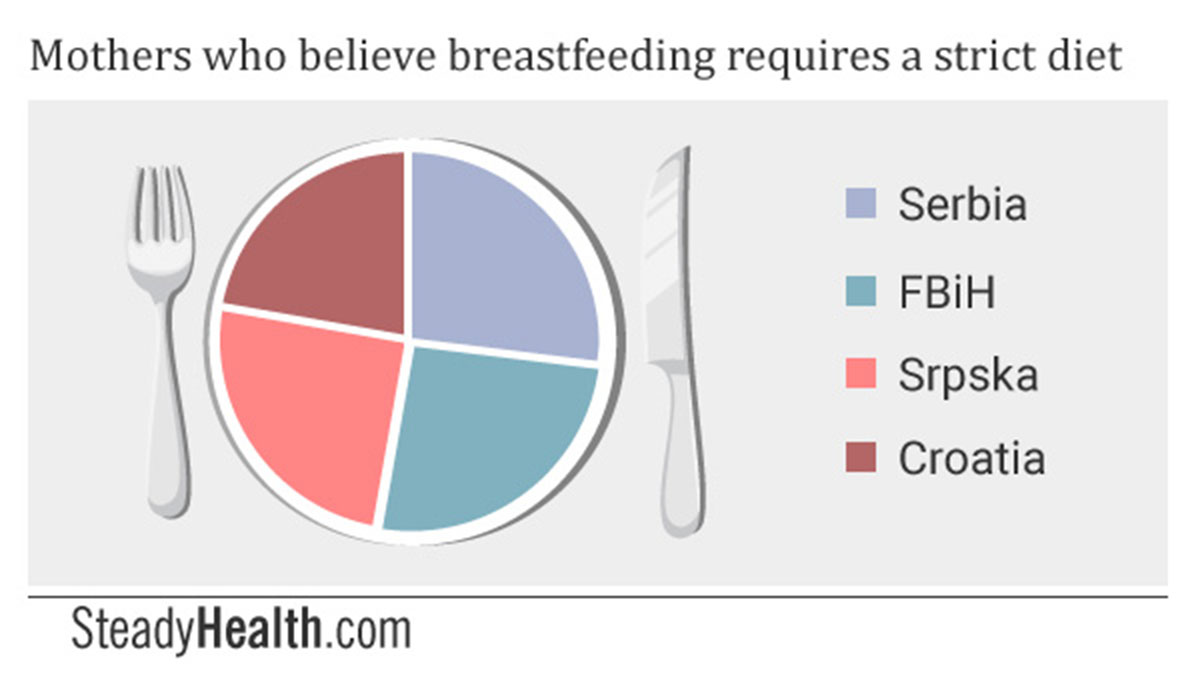
Other breastfeeding-related beliefs participants held in large numbers were:
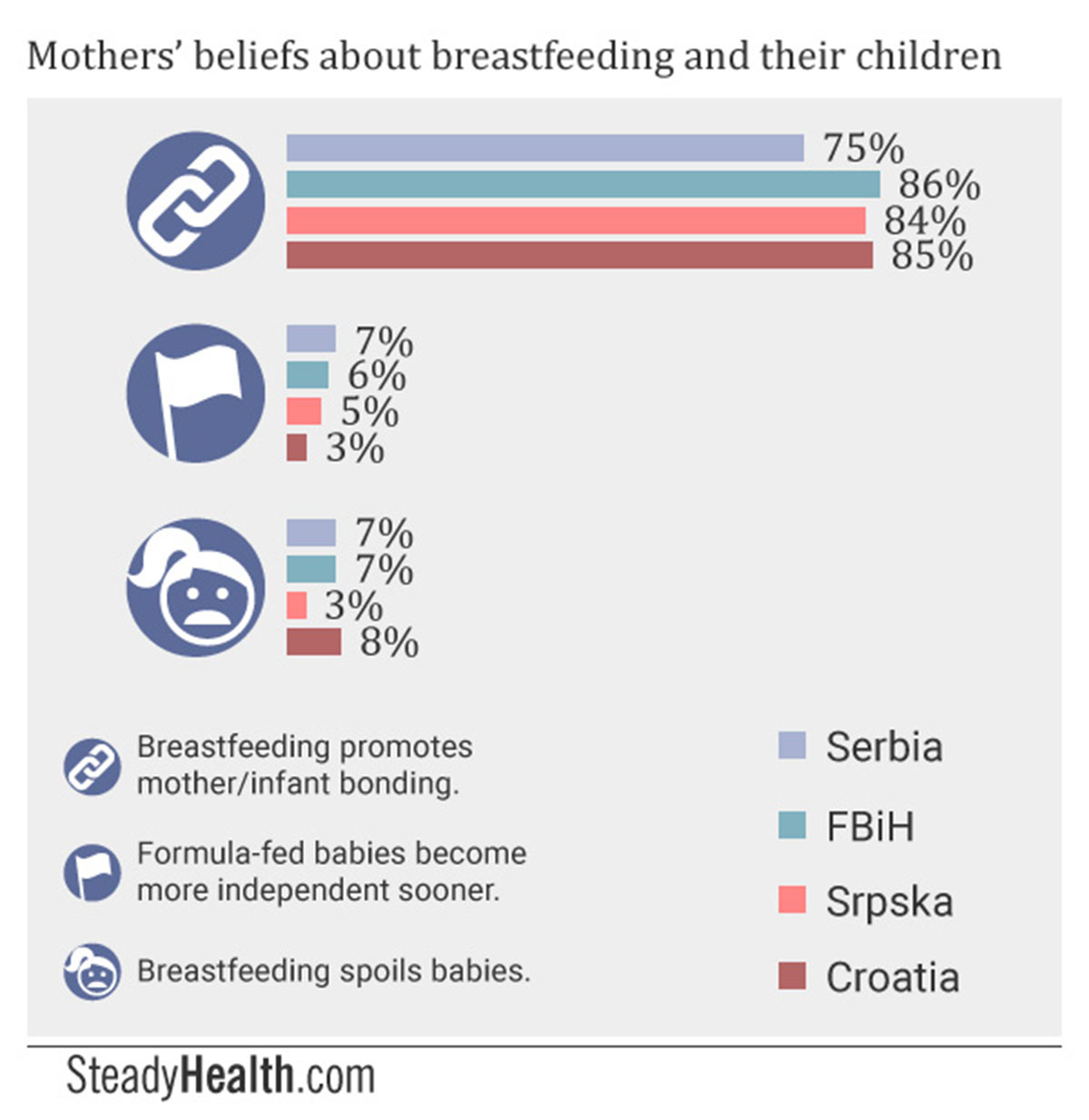
-
Breastfeeding is important, and should be a priority for a mother even when she encounters challenges. (Serbia: 80.5%, FBiH: 78%, Srpska: 76%, Croatia: 74%)
-
Breastfeeding promotes mother/infant bonding. (Serbia: 74.5%, FBiH: 86%, Srpska: 84%, Croatia: 85%)
-
Mothers should have the legal right to breastfeed in public. (Serbia: 71.5%, FBiH: 59%, Srpska: 61%, Croatia: 56%)
-
Most mothers are physically able to breastfeed. (Serbia: 77%, FBiH: 71%, Srpska: 75%, Croatia: 71%)
-
Many mothers do not have enough milk to feed their babies. (Serbia: 30.5%, FBiH: 31%, Srpska: 27%, Croatia: 35%.)
-
Breastfeeding offers health benefits to mothers and babies, but they are not so significant that negatively judging mothers who choose to formula feed is warranted. (Serbia: 32.5%, FBiH: 37%, Srpska: 35%, Croatia: 44%.)
Less significant numbers than we initially expected answered that they believed mothers should stop breastfeeding without question if a healthcare provider recommends this (less than 9.5% everywhere), that breastfeeding interferes with one’s sex life (less than 7% everywhere), that formula-fed babies display independent behavior earlier than breastfed babies (less than 7% everywhere), and that breastfeeding makes it harder for babies to bond with non-mother caregivers (less than 7% everywhere). Only in Croatia did more than a fifth of mothers indicate that they believed breastfeeding to limit a mother’s opportunity to socialize with others, and only in FBiH did a fifth of respondents reply that mothers who are under stress should not nurse their babies.
Wondering where mothers obtained the beliefs they held about breastfeeding, we asked them both whether they were a member of a breastfeeding support group, and where they primarily gathered information related to parenting.
Serbia had the highest rate of members at 20% of surveyed mothers. In the remaining regions, around 15% reported they were members. We have to note that mothers from both regions of Bosnia mostly added that the support groups they belonged to were online, showing that the internet has become an important medium for accessing support where such infrastructures are not in place locally.
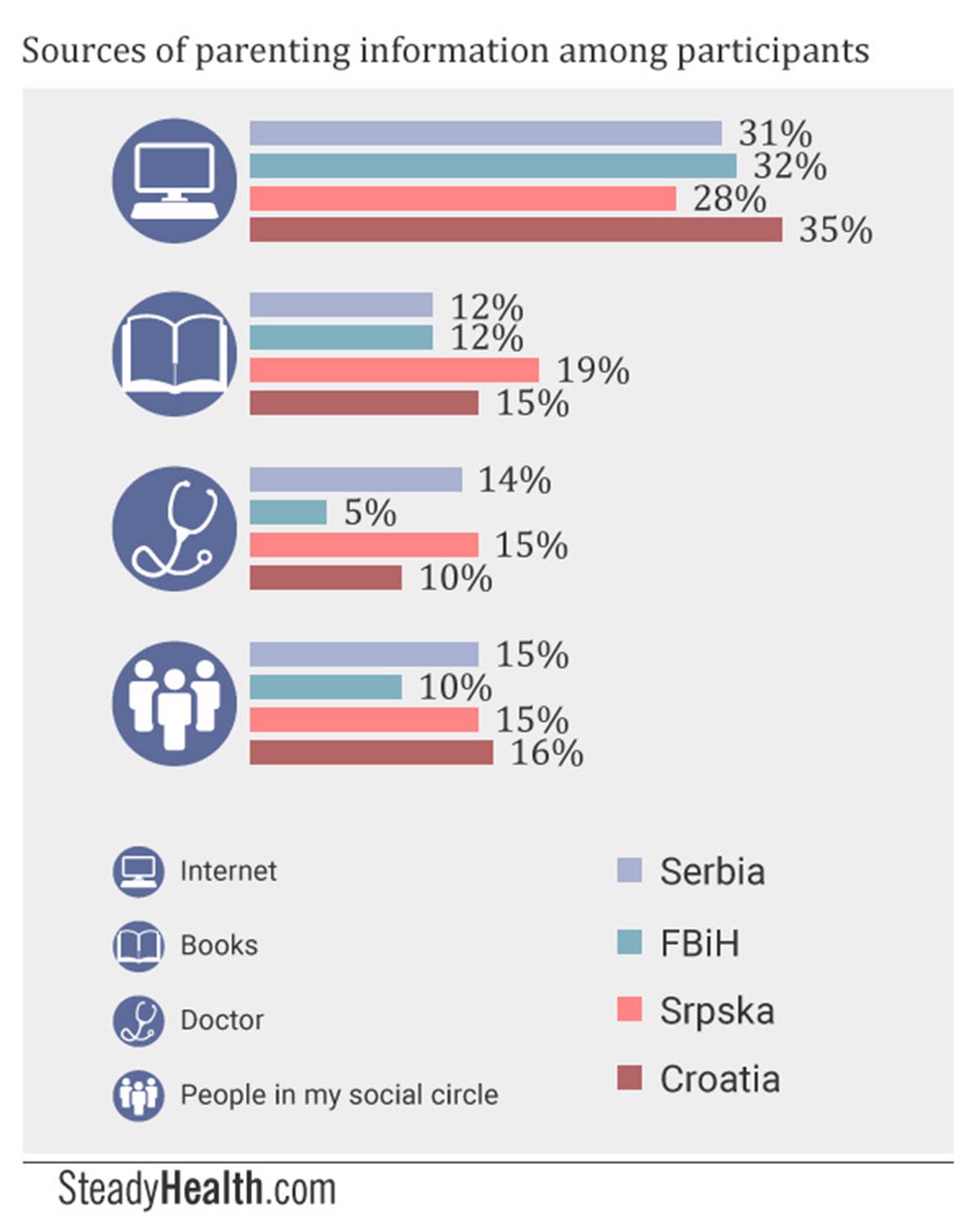
In Serbia, people from participants’ social circles, their doctors, and books were the remaining top three sources of information. In FBiH, books and their own instincts were the most important sources of information besides the internet, with 10% also relying on people they knew and 10% saying they used “any available source of information”. Nearly a fifth of Srpska respondents chose to get their information from books, while their doctor and people from their personal social circle also made up popular sources. In Croatia, meanwhile, mothers sought out books and people they knew, with doctors following closely behind as sources of information.
- Infographics by SteadyHealth.com
- www.euro.who.int/__data/assets/pdf_file/0017/243323/Serbia-WHO-Country-Profile.pdf?ua=1
- www.euro.who.int/__data/assets/pdf_file/0010/243289/Bosnia-and-Herzegovina-WHO-Country-Profile.pdf?ua=1
- www.euro.who.int/__data/assets/pdf_file/0003/243291/Croatia-WHO-Country-Profile.pdf?ua=1
- www.who.int/mediacentre/news/statements/2011/breastfeeding_20110115/en/
- www.euro.who.int/en/health-topics/disease-prevention/nutrition/news/news/2015/08/who-european-region-has-lowest-global-breastfeeding-rates


Your thoughts on this